Surviving Munchausen By Proxy and Suffocation Abuse
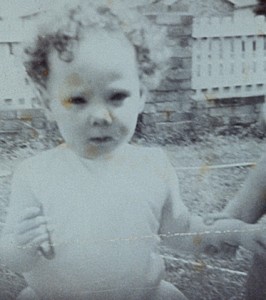
SOME STATISTICS
Suffocation abuse is perpetrated by carers with Factitious Disorder Imposed on Another (previously called Munchausen’s Syndrome By Proxy, or MSBP), 76%-98% of whom are the mothers of those they abuse. “In a survey of 51 clinics treating infant apnea, 54 of 20,090 children (0.27% or 1 in 200 of these children) had been subjected to MSBP”.
Of those subjected to intentional suffocation abuse in childhood, around 33% will be killed and 67% will survive. Around 25% of those who survive will have ongoing neurological and/or psychological and physical damage from the suffocation or poisoning abuse. In most cases of intentional suffocation abuse the abuse may begin when the child involved is only months old and if the child survives it usually stops by the time the child is 4 years old (probably because of risk the child would report the abuse). In around 25% of cases the carer committing suffocation or poisoning abuse will go on to later continue similar on further siblings. Half of those who are suffocated as also poisoned.
MY STORY:
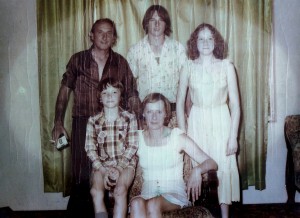 In 1991 my autobiography, Nobody Nowhere, was published and became an international bestseller. It, and its sequel, Somebody Somewhere, both detailed child abuse living with a carer who was alcoholic, personality disordered, compulsive and psychopathic.
In 1991 my autobiography, Nobody Nowhere, was published and became an international bestseller. It, and its sequel, Somebody Somewhere, both detailed child abuse living with a carer who was alcoholic, personality disordered, compulsive and psychopathic.
“A pillow was pushed down upon my face day after day. You never knew when it would strike. You had to pull your jaw and bottom lip in anticipation of the pressure on your mouth. ‘Calm down, have no need to breathe.’ The feeling of fabric forced into your mouth would trigger the response to vomit”.from Somebody Somewhere 1994.
“I felt the dish-cloth being forced into my mouth. It made me gag. I was choking as I vomited up against it.”from Nobody Nowhere 1991.
CENTRAL APNEA:
Respiratory drive is a brain thing… its the messages to the brain about lack of oxygen and high CO2 that makes our brain make us breath. I gained functional speech by age 9-11 and had first told others about my central apnea in my early teens when I asked ‘why do other people’s brains keep them breathing and mine keeps forgetting’. Then following a 7 month respiratory infection in 2009, I began waking finding myself with no urge to breathe and dizzy with numb hands and feet. When I told the GP he asked if I snored, I replied that I didn’t and because I was not overweight, and therefore likely did not have Obstructive Apnea, he never considered Central Apnea and so did nothing about it.
Oxygen deprivation associated with untreated severe sleep apnea is implicated in breast cancer risk for women under 59. In 2011, aged 47 I found myself with breast cancer. During chemo for the breast cancer I was facing significant autonomic dysfunction including severe central apneas. I had always had difficulty getting foods to go down, with life long constipation, with going the whole day without a pee or struggling to hold on, with my temperature being bizarre. I had had the hypoventilation since age 2-3, which was already evident when I drowned twice at age 3 simply because I had no urge to breathe so just sat on the bottom of the pool both times. The oncologist concluded that my autonomic dysfunction was not caused directly by chemo (which also strips the body of sodium), but was a pre-existing condition being exacerbated by it.
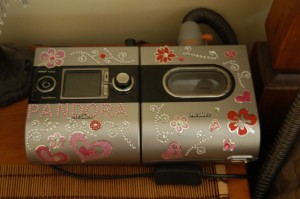 In early 2012 I was diagnosed with severe mixed apnea which appeared to be largely central (neurological) apnea which effects only around 5% of apnea patients. Central apnea involved my respiratory drive becoming insufficient to keep me breathing in my sleep and as it commonly involves some level of brain injury its causes are almost always ominous; brain tumor, MS, Parkinsons, heart failure, COPD, cervical spinal injury, head trauma, bacterial or viral encephalitis…none of which fitted my case.
In early 2012 I was diagnosed with severe mixed apnea which appeared to be largely central (neurological) apnea which effects only around 5% of apnea patients. Central apnea involved my respiratory drive becoming insufficient to keep me breathing in my sleep and as it commonly involves some level of brain injury its causes are almost always ominous; brain tumor, MS, Parkinsons, heart failure, COPD, cervical spinal injury, head trauma, bacterial or viral encephalitis…none of which fitted my case.
I went onto ventilation and in our search for what was helping we found that high amounts of salt (2-4 tsp a day) were the only thing than seemed to show clear improvement. When in spite of these high sodium intakes I was found to have normal blood and urine sodium levels, my autonomic dysfunction was thought to be part of a salt wasting syndrome (usually also caused by brain injury). My father had been an extreme salt craver, as had I, so it was presumed this was perhaps genetic. The other possibility is we had somehow had similar brain injuries. But how? In our shared household my father had been poisoned but I had been suffocated repeatedly. Could such different routes both lead to related salt wasting outcomes?
A specialist in autonomic dysfunction then diagnosed me with a genetic collagen disorder, Ehlers Danlos Syndrome (EDS). However, whilst EDS comes with a level of autonomic dysfunction but didn’t account for the hypoventilation. From 2012 to 2014 our search for why this has happened ultimately ruled out every other cause, congenital and environmental, finally left with only two causes we could not rule out: asphyxiation and/or poisoning and associated brain injury from lack of oxygen (hypoxic-ischemic encephalopathy) in early childhood when the hypoventilation first onset. The damage of this can range from mild-moderate diffuse brain injury which may not be seen on MRI to severe in a case of massive cerebral stroke.
SUFFOCATION ABUSE:
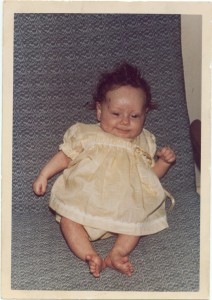 From 6 months to 2 and a half years old I was in a program for at risk children from Monday-Friday. I can remember the suffocations from at least as young as 2-3 years old though its possible these also happened at younger ages as I show signs of hemiplegia at both months old and later at age 3-4.
From 6 months to 2 and a half years old I was in a program for at risk children from Monday-Friday. I can remember the suffocations from at least as young as 2-3 years old though its possible these also happened at younger ages as I show signs of hemiplegia at both months old and later at age 3-4.
It is difficult to generalise: hemiplegia affects each child differently. The most obvious result is a varying degree of weakness, stiffness (spasticity) and lack of control in the affected side of the body, rather like the effects of a stroke. In one child this may be very obvious (he or she may have little use of one hand, may limp or have poor balance); in another child it will be so slight that it only shows when attempting specific physical activities. Despite the developing brain’s effort to relocate functions to undamaged areas, approximately half the children do have additional diagnoses. Many children have less obvious additional challenges, such as perceptual problems, specific learning difficulties or emotional and behavioural problems
I remember the suffocations most intensely between age 2-3 because these were so repeated and because at this point I was aware of what was happening to me and forced to try and take extreme action to avoid it but these incidents continued until I was at least age 4.
I was being suffocated in my bed at night and remember fighting for my life in the first 1-3 incidents. I remember sleeping down the tucked in side of the bed by the wall where I couldn’t get got, and then taking to sleeping under the bed.
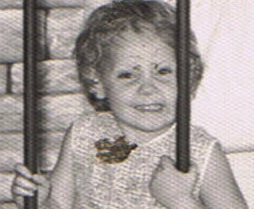 As the suffocations continued, I remember finding eventually that I didn’t ‘need’ to breathe and that my ‘not needing to breathe’ left me afraid but not fighting when being suffocated and that this seemed to stop my abuser fighting so hard to push down on my face with the pillow. It was like ‘playing dead’ to have the abuser stop, to rob them of the thrill of the chase. But I wasn’t acting. I had already lost my respiratory drive, probably directly due to the suffocations.
As the suffocations continued, I remember finding eventually that I didn’t ‘need’ to breathe and that my ‘not needing to breathe’ left me afraid but not fighting when being suffocated and that this seemed to stop my abuser fighting so hard to push down on my face with the pillow. It was like ‘playing dead’ to have the abuser stop, to rob them of the thrill of the chase. But I wasn’t acting. I had already lost my respiratory drive, probably directly due to the suffocations.
My abuser also strangled me at night a number of times but again, I now didn’t fight, all I felt was pressure in my head and I was probably by now too dissociated to have any personal reaction to what was being done to my body. During the day my abuser began randomly entering my room to strap me until I went into shock and stopped breathing. Perhaps that was her obsession, to see me unable to breathe, turning pale, turning blueish. Perhaps the power thrilled her, the taboo of harming me, the fact I was functionally non verbal so would probably never be able to tell or that perhaps by keeping me brain damaged and traumatised enough she could ensure I never could.
A WIDER CONTEXT:
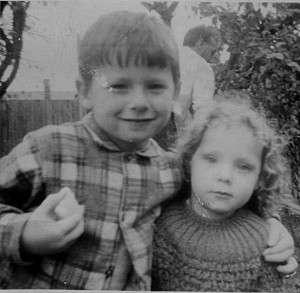 Perhaps it was just part of ‘enjoying’ having a ‘doll’ and the more doll like I remained the more she preferred that to an actual human being or, in her fragile insecurity this was her way of dealing with ‘the threat of competition’. Was she enjoying my progressive dissociation, the entrenchment of my trauma which could be further flagwaved as proof of her martyr motherhood in ‘loving me in spite of my obvious psychosis’ (which is perhaps what she longed for as a clearly disturbed child herself)? Whatever reason, once I was frozen and unable to breathe she was able to grab me and take her abuse to the next level. This happened regularly, probably several times a week from around age 3-4 years old.
Perhaps it was just part of ‘enjoying’ having a ‘doll’ and the more doll like I remained the more she preferred that to an actual human being or, in her fragile insecurity this was her way of dealing with ‘the threat of competition’. Was she enjoying my progressive dissociation, the entrenchment of my trauma which could be further flagwaved as proof of her martyr motherhood in ‘loving me in spite of my obvious psychosis’ (which is perhaps what she longed for as a clearly disturbed child herself)? Whatever reason, once I was frozen and unable to breathe she was able to grab me and take her abuse to the next level. This happened regularly, probably several times a week from around age 3-4 years old.
GETTING LABELLED:
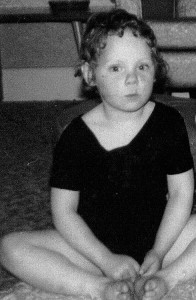 I grew up meaning deaf, meaning blind, face blind and could only process my visual world bit by bit (Simultagnosia). At 2 and a half I was in a three day hospital assessment because I was extremely pale, bruised easily, was coughing up specks of blood, appeared deaf, stared through everyone and everything, was echolalic and was self injurious. I was tested for leukemia and deafness and at the end of the three days had been diagnosed as ‘psychotic’ (autism was deemed ‘childhood psychosis’ in those days). I have little memory of that stay, only fragments, and I was perhaps restrained which would have triggered trauma associated with similar from home. In any case far from feeling safe or welcoming, this left me with hospitals triggering a fear of entrapment, even incarceration.
I grew up meaning deaf, meaning blind, face blind and could only process my visual world bit by bit (Simultagnosia). At 2 and a half I was in a three day hospital assessment because I was extremely pale, bruised easily, was coughing up specks of blood, appeared deaf, stared through everyone and everything, was echolalic and was self injurious. I was tested for leukemia and deafness and at the end of the three days had been diagnosed as ‘psychotic’ (autism was deemed ‘childhood psychosis’ in those days). I have little memory of that stay, only fragments, and I was perhaps restrained which would have triggered trauma associated with similar from home. In any case far from feeling safe or welcoming, this left me with hospitals triggering a fear of entrapment, even incarceration.
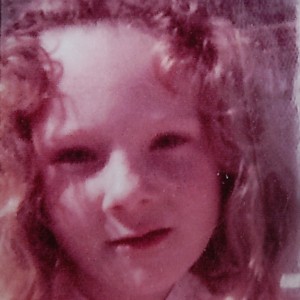 I can remember from around age 7 onwards being introduced as ‘that’s Donna, she’s disturbed’ or ”that’s Donna, she’s psychotic’ to visitors to the house and among my relatives and the local community she would regularly reinforce psychiatric instability with ‘we all know Donna’s crazy’.
I can remember from around age 7 onwards being introduced as ‘that’s Donna, she’s disturbed’ or ”that’s Donna, she’s psychotic’ to visitors to the house and among my relatives and the local community she would regularly reinforce psychiatric instability with ‘we all know Donna’s crazy’.
THE CAMPAIGNS:
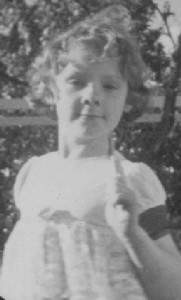 At the same time between the age of 8-10 she would have ‘campaigns’ designed to make me highly confused and mistrustful of others, my own mind and perceptions in every possible way. One campaign was to have me continually overhear her share the ‘secret’ with my older brother that I was actually a boy but didn’t know. Another was to continually tell me graphic sexualised stories to make me disgusted by and mistrustful of my father (he has never abused me). Another was to repeatedly have me look in the mirror whilst telling me that I’m actually full of spiders and the only reason I see a child is because the reality is simply too terrifying. By the age of 9 or so I was put on sedation for severe anxiety by a new GP and kept on this for several years without any questioning or exploration of my anxiety by any professional. Once I gained functional speech by age 9-11 and began asking about things that had happened she began a campaign that I could not trust any memories I had on the basis I was a reincarnation and was remembering someone else’s life. Then just to be sure she ensure I had no doubt that if I told nobody would believe me because everyone knew I was crazy and just ‘hated your mother’.
At the same time between the age of 8-10 she would have ‘campaigns’ designed to make me highly confused and mistrustful of others, my own mind and perceptions in every possible way. One campaign was to have me continually overhear her share the ‘secret’ with my older brother that I was actually a boy but didn’t know. Another was to continually tell me graphic sexualised stories to make me disgusted by and mistrustful of my father (he has never abused me). Another was to repeatedly have me look in the mirror whilst telling me that I’m actually full of spiders and the only reason I see a child is because the reality is simply too terrifying. By the age of 9 or so I was put on sedation for severe anxiety by a new GP and kept on this for several years without any questioning or exploration of my anxiety by any professional. Once I gained functional speech by age 9-11 and began asking about things that had happened she began a campaign that I could not trust any memories I had on the basis I was a reincarnation and was remembering someone else’s life. Then just to be sure she ensure I had no doubt that if I told nobody would believe me because everyone knew I was crazy and just ‘hated your mother’.
AUTISM?
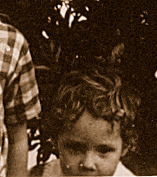 Trauma, abuse, neglect may lead to a child presenting ‘autistically’, would exacerbate the degree of a child’s pre-existing autism, but do not make a child autistic. However, 80% of children with Fetal Alcohol Spectrum Disorder get diagnosed with autism and 42% of children with untreated hypoventilation have developmental disabilities as a result of ongoing oxygen deprivation (hypoxia), many of whom will become diagnosed with autism. Brain injury from asphyxiation and/or poisoning are both known to result in language processing disorders, visual perceptual disorders, communication disorders, emotional dysregulation, problems with impulse control, co-ordination, learning disabilities and associated emotional and behavioural impacts which collectively could present as ‘autism‘.
Trauma, abuse, neglect may lead to a child presenting ‘autistically’, would exacerbate the degree of a child’s pre-existing autism, but do not make a child autistic. However, 80% of children with Fetal Alcohol Spectrum Disorder get diagnosed with autism and 42% of children with untreated hypoventilation have developmental disabilities as a result of ongoing oxygen deprivation (hypoxia), many of whom will become diagnosed with autism. Brain injury from asphyxiation and/or poisoning are both known to result in language processing disorders, visual perceptual disorders, communication disorders, emotional dysregulation, problems with impulse control, co-ordination, learning disabilities and associated emotional and behavioural impacts which collectively could present as ‘autism‘.
SECTIONED:
When I was 3 years old my mother was sectioned as an involuntary psychiatric patient for trying to shoot my father but released when she convinced the psychiatrists she was only reacting to his compulsive womanising and domestic violence.
GUARDIANS:
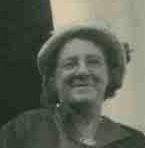 At the age of 3 I was put into the custody of my father’s parents, who lived in a shed in our back yard and with whom I felt safe, playful and connected. However, whilst this stopped me going into a children’s home, and my father began taking me out in the car at nights, it still kept me endangered within the house and any time I was left solely in my mother’s care. My mother had open disdain for my grandmother, who she called ‘dotty, potty, and deaf’ and was probably somewhere on the autism spectrum. My mother appeared to strive to prove I had taken after her whilst simultaneously doing all that would contribute to me being more autistic than I’d otherwise have been.
At the age of 3 I was put into the custody of my father’s parents, who lived in a shed in our back yard and with whom I felt safe, playful and connected. However, whilst this stopped me going into a children’s home, and my father began taking me out in the car at nights, it still kept me endangered within the house and any time I was left solely in my mother’s care. My mother had open disdain for my grandmother, who she called ‘dotty, potty, and deaf’ and was probably somewhere on the autism spectrum. My mother appeared to strive to prove I had taken after her whilst simultaneously doing all that would contribute to me being more autistic than I’d otherwise have been.
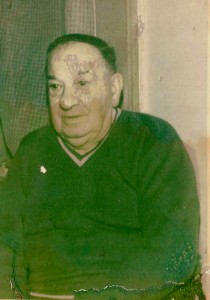 When I was four and a half my grandfather died in the shed. My grandmother had been away and my mother had been in the shed with him until 2am the night before giving him cups of tea. Two of her sisters later told me that at 10am the next morning upon ‘finding him dead’ that she had gone to fetch a mirror to check if he was still breathing before she called the ambulance.
When I was four and a half my grandfather died in the shed. My grandmother had been away and my mother had been in the shed with him until 2am the night before giving him cups of tea. Two of her sisters later told me that at 10am the next morning upon ‘finding him dead’ that she had gone to fetch a mirror to check if he was still breathing before she called the ambulance.
After 4 and a half years of her living with us since before I was born, my paternal grandmother, who was my last custodian and the closest thing I emotionally had to a mother, now went to live 100 miles away in a caravan in the back yard at her daughter’s house in Drouin. I got to see her once a year over the next three years before she died. But on each visit my mother would say I had misbehaved on the car trip so had to stand in the hall with my back to the wall only able to look at the grandmother I couldn’t go to. Neither my grandmother was to cross the room to me, nor was I allowed to cross into the kitchen to her. Her grandaughters at this house ranged from 10-20 years old and one who had lived with her there told me a few years ago that my grandmother had been in and out of treatment at Mont Park mental hospital, largely for paranoia, claiming she had been told by my mother that my mother would come burn her alive in her caravan.
THE ‘ANGEL OF DEATH’:
In my 20s my mother was again looking after someone for a few days. It was her boyfriend Don Sheddon’s 45 year old wife who apparently had the flu. She told how she apparently went out to the shops to get her something and on returning, found this woman dead from a sudden and unexpected heart attack. My mother appeared to have a habit of gravitating to sick people at least two of whom had been found by her once dead. As 4 of her 8 siblings, now their 50s, developed metastatic cancer, she ensured she was there for them in their last months and days, acting as carer.
My paternal aunt was in palliative care in 2013 because of metastatic cancer and then stroke. My cousin called my mother to tell her it was my aunt’s last days. My aunt had been my mother’s closest confidante from my birth until my teens and at 6 weeks old my mother had given me and all my belongings to her trying to hand me over, but my uncle feared that if they took me my mother would only come and demand me back later, so they didn’t adopt me. My aunt was one of the few relatives who dared to share my own history with me though swore me to secrecy. Once I had left home permanently she had chosen to have no contact with my mother for decades and my cousin presumed that as they had once been so ‘close’ that my mother should know her old confidante was dying. My mother showed up at palliative care when my cousin was fortunately staying there day and night. I’m told that my mother got up close to my aunt, who was conscious but unable to speak and confided, ‘we shared a lot of secrets you and I’.
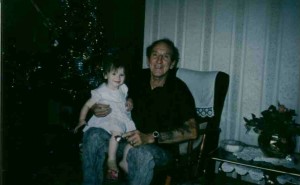 When, at 59, my father’s bowel cancer turned metastatic and he had only weeks to live, my mother had the police retrieve him from his defacto girlfriend’s home in the countryside where he had lived for 10 years on the basis she was overdosing him with morphine supplied by his doctor. Taken into hospital to die, my mother ensured she was now there every day of his last two weeks. My father and I had written to each other over the years and in his last weeks we spoke regularly by phone between him in Australia and me, 10,000 miles away in the UK. In his last two weeks, in our conversations by phone he told me again and again not to return, to stay there where I was safe. He shared his feelings about dying and expressed distress that he was waking each day to still find himself alive but though he had always felt easy about confiding in me, he told me nothing of any mistreatment by his defacto, not in his letters, not on the phone, not even on his death bed.
When, at 59, my father’s bowel cancer turned metastatic and he had only weeks to live, my mother had the police retrieve him from his defacto girlfriend’s home in the countryside where he had lived for 10 years on the basis she was overdosing him with morphine supplied by his doctor. Taken into hospital to die, my mother ensured she was now there every day of his last two weeks. My father and I had written to each other over the years and in his last weeks we spoke regularly by phone between him in Australia and me, 10,000 miles away in the UK. In his last two weeks, in our conversations by phone he told me again and again not to return, to stay there where I was safe. He shared his feelings about dying and expressed distress that he was waking each day to still find himself alive but though he had always felt easy about confiding in me, he told me nothing of any mistreatment by his defacto, not in his letters, not on the phone, not even on his death bed.
I sent my father yellow roses after our last call. When he died I received by post, from my mother, a photo of him emaciated and dead in his coffin with the roses I had sent and a note saying she had sent it in case I wanted to have a funeral of my own for him. When I finally spoke to her several years after his death, she went into graphic detail about how he had been extensively tortured by his defacto girlfriend in collaboration with his life long work colleague, rescued by her to die in peace in the hospital and how he’d told her in his last days how he had regretted his entire life. My brothers remain to this day militantly convinced they had helped rescue their father from torture at the hands of his long term de facto girlfriend and that the excessive doses of morphine she had been administering as part of palliative care at home had been attempted murder. As evidence they drew attention to the fact she had been a widow and her husband, who had also died from cancer, had left her a fortune and she was now in credit card debt and had been killing their father for his money. His girlfriend had a house. He used to have a house, a farm, two businesses, but progressively had lost everything during his continued marriage to my mother – they never divorced – and died with $6000 to his name.
SICK CHILDREN:
Throughout my childhood I had had antibiotics around every 6 weeks or for infections, most particularly upper respiratory tract and ear infections which would last up to 3 months. As an adult I continually tested as IgA deficient and neutropenic which may well have been genetic or related to immune regulation in Ehlers Danlos Syndrome, but having my ears continually dug at with hair clips until they bled and made to take a bath in dirty grey water after all other family members had bathed in it surely would not have helped. Being deliberately sprayed with flyspray between age 3-4 would also not have helped, nor having cigarette smoke deliberately blown into my face for entertainment. Similarly, my younger brother was in hospital at least a dozen times for severe croup, yet he slept in our mother’s room and she was a 1-2 pack a day indoor smoker who rarely opened the windows.
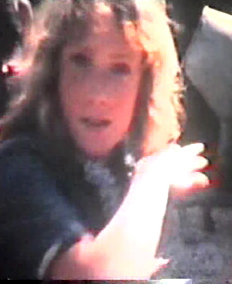 THE DANGER OF QUESTIONS:
THE DANGER OF QUESTIONS:
When I was around 11 years old and beginning to have the ability to ask questions and disclose, my mother took out life insurance policies on me, my father and younger brother (not sure if this was also extended to herself and my older brother). A year later she got me and herself a passport and tickets to Hawaii. She was agoraphobic but intended to take me overseas, just her and I. I was as terrified as someone on death row. She told all and sundry how lucky I was to be getting this trip with her. Fortunately, she cancelled the trip on the basis she had had a ‘premonition’ something terrible would have happened on the trip. She had a lot of ‘premonitions’.
RECORDS:
I saw the childhood GP when I was in my 20s to discuss my records. Aside from the continual visits respiratory tract infections and conjunctivitis (possibly part of IgA deficiency) and chronic constipation (which may have been part of Ehlers Danlos Syndrome)there were visit after visit of treatment for facial abscesses yet I was having my face continually slapped by my abuser which would have caused this. There was a set of visits to progressively strangle off a welt on my back the size of a five cent piece when I was four (I had been struck across the back by my mother with a lump of wood). There was ongoing treatment for a burn that wouldn’t heal well (my mother had intentionally put out her cigarette on my shin whilst pinning me down on the living room sofa). There was an examination for sexual abuse at age 3 and as a result of this my father was banned from picking me up or interacting with me, but my memory is that the only person abusing me at that time was my mother. The 2 GPs who had seen me had reported nothing. There was no mandatory reporting at that time.
I was generally seen by the same two GPs for my first 8 years then another GP from 9-13. I did not feel safe with these GPs. Having been labelled ‘psychotic’ since age 2, and my mother continually reinforcing this perspective of me, it seemed to me they took everything my mother presented them with at face value, questioned nothing, never sought to see me alone, or ask me anything about what I was experiencing even once I had some level of functional speech. In short, I saw them as complicit with my abuser both in supplying her with over a decade of Valium which got used to harm me and my younger brother and mistrusted them as much as any of my mother’s confidantes.
NOT ALONE:
I have survived physical, sexual, emotional and psychological abuse by my mother. I have seen our animals have their necks broken, drowned, poisoned, shot and bashed to death.
WHISKY
Whisky, red, quick moving, wagging shine and flicking tail
Lightening streak around the garden to the sound of squeal‘For your own good’, she said
Then you sat sadly in the shed
More and more your eyes grew helpless
In your ever growing madness.Whisky, you looked at me, with wild flashing eyes
As I stood silent, by my monster
In my shell
You looked as if to say ‘do something’
As week to week additions to your feed bowl
Grew ever more perverse.‘This will happen to the old man’, said the voice in mocking laughter
‘This will happen to the old man’ rang in my ears, I stirred the gravy.
‘This will happen to the old man’, gripped my stomach as the gravy poured
Upon his plate
In silence I could only scream, there was nobody could save me.Whisky, what would I tell you now
A world away, you soul who died a thousand deaths
Before that last and fleeting one.
My one happy memory was the day he pulled the trigger
He’d shed a tear for in his ignorance, all that he knew was you’d gone mad
For no apparent reason.That day, I felt God answered you, and you were finally free
Your body not alone in that big, so impressive, garden
In the company of the kelpie who had met death much the same
At the hands of wooden post, clenched fists and hateful swinging feet.
His crimes?
Dug plants, torn washing, barked, and been a dog.The lady in the laneway who had lived around the corner
Had said her prayers for him as I for you.
As she begged helplessly, ‘no more, I’ll take him’ from the other side of six foot fence
When silence fell then I was glad for that one too.For me there was no way out like you two lucky fellas
Silence was a language we all spoke
Its years since forced to witness such perverse and brutal scenes
Yet justice screams within me for other voices never heard.
THE PATTERN CONTINUES:
I understand from my mother’s sister that I was commonly tied to my bed, locked into my room and given regularly gin and valium in my bottles before I was 4 years old on the basis that I was ‘uncontrollable’. I then saw Valium given daily to my younger brother from 2-4 years old, again on the widely advertised basis that he had been diagnosed by the Children’s Hospital as severely hyperactive and had been rejected by several childcare centres as he was too hyperactive for them to cope with. But when he had left his belongings in my place in 2002, exposed in the top of a box was a letter from the Children’s Hospital to my younger brother stating they had no record of him ever having such a diagnosis by them. In my 30s I told him about the suffocations and he told me how he too had experienced some of these when he was 3 years old but presumed they had been by my older brother (who was only 4 years old when they were happening to me).
BONDING:
I was lucky enough to know what real mothering was before the age of four from several healthy other carers. I accept and respect that my younger brother did not have my early bonding history with other carers, and that since the age of 3-4 he became attached to my abuser and loyal to her. He has made it clear this would always trump any connection with me and I can understand and accept how he came to that. Similarly, my commitment to my own survival, physical and mental health, means I will always be more attached and loyal to myself than to anyone deeply connected to or deeply involved with her.
ENDANGERMENT:
I had been endangered to male visitors at parties at our house and had been sexually assaulted in my room by one of them at the age of 8. So combined with the domestic violence following the weekly parties at the house, the direct abuse I was dealing from my mother and now this new threat, I had found myself another family around the corner to live with when possible. This broke down by the age of 10. By 13 I had been raped in my room and had now developed such terror of returning home on so many levels that my body would go into tremors as I even approached the front gate. Combined with the sedatives I’d been put on by late childhood and the painkillers I had been put onto for what had been diagnosed by the new GP as ‘juvenile arthritis (which is a usual early diagnosis in those with Ehlers Danlos) I now took to drinking to manage just entering the property. I was lucky enough to gain an unofficial foster family from 13-15 and spent those years with them and otherwise sleeping rough.
MORE PROXYS:
From 15-22 I lived with older men in exchange for staying out of homelessness. On return once to my mother’s local supermarket, however, I was confronted by a cashier who had known me and told ‘your mother has told us how you left home to become a slut and a drug addict’ and on attending my older brother’s engagement and 21st party my mother’s sister in law confronted me mockingly with ‘your mother has told us how you imagine she abused you’. So there was no way to escape my abuser even indirectly.
STALKING:
Leaving her house didn’t stop her desire to continue harm. Once I’d left and hadn’t seen her for some years by the age of 17, she accosted me in the street, told me she had been watching me, knew where I walked, and would one day grab me by the hair and throw me under the wheels of her car. Even when I went overseas at 26 my bank told me she had been contacting them and claiming I was a missing person. When I sent a postcard from Germany to appease her and stop her stalking me, she tracked me down from the postage stamp to the town I was in and when she found me, convinced my employer on the phone she was deeply worried. When he put me onto the phone she simply snarled ‘you think you can escape me, I’ll find you no matter where you go’.
Following the fame of my first book and its sequel in my 20s, when I had no contact with her whatsoever, she showed up at the home of my most trusted friends to just ‘introduce herself’. When I returned to Australia after ten years in the UK I showed up to an international conference I was speaker at and the host of the conference had been contacted by my mother and told my mother was deeply worried for me as she had seen my name on a list of victims of the Bali Bombings and wished to be informed as soon as I arrived. In my late 40s a colleague then told me she had met my mother when my mother had jumped into her taxi to share a ride, and introduced herself as my mother to ensure I’d know she could connect with anyone who might know me. Shortly thereafter I had several autism parents approach me at different Melbourne conferences to tell me they had been approached by my mother on the basis she’d seen their child was autistic then introduced herself as my mother so they would then tell me at the conferences ‘I have met your mother’. In each case she played the proud but rejected mother of a daughter who, for no comprehensible or justifiable reason chose to have no contact with her.
THE TERM ‘MOTHER’:
I understand my abuser, her addictions, her narcissism, her psychopathy and finally coming to terms with her own multiplicity. But it doesn’t change the fact that her actions have left me with challenges I have worked my entire life to adapt to.
I do not think of my abuser as my mother. Biologically, this is what she is. I do not thank her for giving birth to me (she attempted home abortion with quinine twice during her pregnancy with me and continued to resent my existence until she came to see me as her doll/narcissistic object at 3-4 years old). She learned how to role play in some situations but being a mother is more than a role play. I am aware that she was, and therefore at some level will probably always be, addicted to me and that this is her closest idea of attachment, caring, love. I know that like any psychopath, she is a survival machine and that that includes a life committed to ‘divide and conquer’ and silencing tactics to maintain a status quo that works to deflect any responsibility, blame or change. I know she misses ‘the game’ and that I was probably her favorite ‘toy’ in ‘the game’. I know she can’t help all she was, all she is and that equally my father’s womanising and domestic violence didn’t help but on that score they were pretty much on a par. I do not regret the life I had for there was no other one on offer.
WHY?:
Why she would have had Munchausen’s By Proxy, who knows. She grew up as second eldest of 9 siblings to poor uneducated teenage parents who ultimately were both alcoholics. Through various family accounts I understand the family were itinerant in her early to mid childhood and that drunkenness, violence, criminality and incest were normal in her world. It appears she poor social skills, an inability to form friendships and a history by late childhood of planned violence to other children and in her teens compulsive bullying of her 6 year old sister (who told she would wait for her after school and bash her up in front of her school friends). In her own accounts she expressed that she had been burdened with the responsibility of looking after and looking out for all the younger children whilst simultaneously expressing that she had never felt mothered by her mother. She commonly gave an impression that she felt plain, unattractive, insignificant and felt always upstaged by her older sister. She was pathologically jealous of this older sister Margaret, who she called ‘Maggots’, who had a son at 14 and on his return as an adult told him that his father was his grandfather. She competed with Margaret for her father’s attention and gave accounts of believing that if she could disfigure her sister’s face she would become the favorite. By family accounts she took a lid of a tin can to school to practice, apparently harming two other children.
She had an obsessive compulsive character, capable of fixating on extensive detail of whatever took her interest, whether this was reading the Spanish dictionary or extensively studying child murderers like Myra Hindley and Mary Bell. I see her as having had traits of Asperger Syndrome. In addition, I think she had an addictive personality which lead her to substance abuse which diminished further any kind of responsibility for her actions.
I was told that when I was 0-3 years old she continually called my father threatening suicide and he’d return home to find her unconscious from gin. This and a clear pattern of idealisation-demonisation and a belief that life is a movie and everyone is an actor in the movie, seem quite Borderline and her abuse had strong features of compensatory narcissism as well as psychopathy. Whilst she did marry a womanising domestic abuser, and I have no doubt it didn’t help the situation, I don’t buy that this made her develop Munchausen’s by proxy.
Harming me gave her power over my father, a sense of retribution, an ability to present herself as a selfless martyr and generous in making such a damaged and seemingly ungrateful daughter so awash with dolls, clothes, decor and chandeliers that she could deflect from any judgement or any attention to her own psychiatric and social deficits.
EMPATHY?:
Do I have empathy for that? No. I don’t have the Co-Dependency to take any responsibility for it. Whatever our childhoods, our traumas, losses, deprivations, we are each nevertheless still responsible for for seeking help, accepting help to manage our own conditions in ways that stop us harming others. If she was so rewarded by her ‘game’, so addicted because of that continual sense of reward to do any of that, there is nothing to have empathy for.
Psychopaths, alcoholics, narcissists, Borderlines, addicts… are all challenging but all have some level of relateability if you strive to note it. I have strived to see, respect, even appreciate what is human and relateable about my abuser. But equally this does not cancel out the counter balance of all else she was and, however covert, all else she continues to be. I have not lived with her since I was 15 years old, not had ongoing contact with her for decades and no contact at all since 2001. I am glad to have survived her and my life. However impacted, it is a healthy, happy, connected, full life. I don’t care if she’s now 71, or when she’s 81 or 91 or on her deathbed. I have no bonding with my abuser, no need or desire for one more round of ‘the game’ or to be part of one more role play, a finale in her ‘movie’. There is no place for anyone like my abuser within my life.
Her abuse fragmented my soul. I grew up dissociated and was ultimately treated for PTSD and Dissociative Identity Disorder.
Being divided into so many compartmentalised parts made it a monumental task to gather a cohesive sense of what all these parts of me survived. This is how abuse silences survivors. For others, they lose their lives in substance abuse, or commit suicide. But those of us who can tell, should. For silence and secrets can harm, and kill and need not continue to damage others.
POSITIVES:
Did I take positives from surviving Munchausen’s By Proxy? I think so.
* Never buying the sales pitch, never being fooled by the advertising.
* Learning to strive to trust those who have earned and deserve your trust.
* Keeping yourself safe from abusers and equally those they use as their proxies.
* Having and expecting clear and strong boundaries, give and take, mutual respect.
* Accepting community and friends as family and becoming a citizen of the world.
* Being your own person, developing healthy self parenting skills, being your own best friend.
* Learning that disclosure won’t kill you, it just might save you and keep you and others safe.
* Living for today, for you cannot guarantee any tomorrow.
* Valuing healthy love, caring, and attachment by stark contrast with what it is not.
* Being willing to walk away, go it alone, no matter the losses, no matter the threats.
* Striving to face, to comprehend, and to move on from the unfathomable and the overwhelming.
* Taking nothing whatsoever for granted.
* Cherishing the light all the more because one has so intimately survived darkness.
* Spirituality: spirits cannot be killed for they live on in those they healthily loved and who had healthily loved them.
* Trusting to life because sometimes that was all there was to trust and because sometimes it was the random twists and turns of life itself that saved you by default.
* Not sweating the little stuff.
Donna Williams, BA Hons, Dip Ed.
Author, artist,and presenter.
http://www.donnawilliams.net
I acknowledge Aboriginal and Torres Strait Islander people as the Traditional Owners of this country throughout Australia, and their connection to land and community.

I read about your interesting life. My son Massimo is asperger.